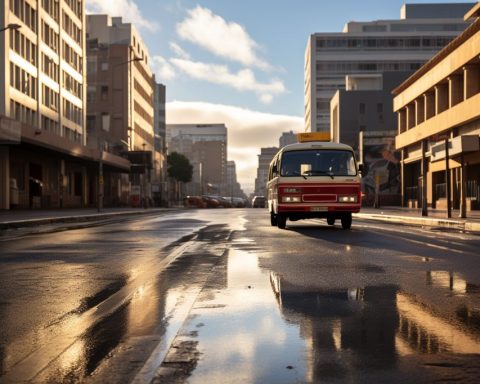The small town of QwaQwa in South Africa’s Maluti-a-Phofung Local Municipality has been hit by a violent taxi strike that has been ongoing for four days. This strike has caused chaos, disrupted daily life, and battered the local economy. The conflict between rival taxi associations has escalated to a gruesome level, causing widespread concern and prompting calls for urgent intervention.
Concerns about the situation
Moshe Lefuma, Democratic Alliance (DA) Constituency Chairperson for the Maluti-a-Phofung Local Municipality, expressed his concerns about the situation. He respected everyone’s right to protest; however, the escalating violence associated with this strike is both worrying and disturbing.
The impact on the local economy
QwaQwa residents already struggle with an alarming unemployment rate of over 60%, with the youth being the most affected demographic. The strike has halted the functioning of the local economy, adding to the already precarious financial situation in the town. Stores in the Setsing district have closed their doors, further exacerbating the crisis.
Call for urgent intervention
Lefuma issued a statement on Saturday urging the Free State Department of Roads and Transport and the South African Police Service to intervene in the ongoing conflict. He urged them to work together with the taxi associations to find a peaceful resolution. As the town’s population primarily relies on taxis for daily activities such as commuting, shopping, and visiting family, finding a swift solution is of utmost importance.
Support for mediation talks
The Democratic Alliance has extended its support in mediating talks between the warring taxi associations, in hopes of restoring normalcy to the lives of the people of QwaQwa and revitalizing the fragile local economy.
Importance of a swift resolution
As the strike continues, access to essential goods, medicines, and family connections is becoming increasingly limited, causing desperation to grow among the residents. It is evident that the well-being and livelihoods of the people of QwaQwa must be prioritized, with a swift resolution to the conflict being more urgent than ever.
Importance of collaboration
The taxi strike in QwaQwa serves as a stark reminder of the challenges faced by small towns grappling with economic hardship and high unemployment rates. The current situation highlights the importance of collaboration among government authorities, law enforcement, and local businesses in finding peaceful and effective solutions to conflicts that threaten the stability of communities.
Call for decisive action
The ongoing violence associated with the taxi strike in QwaQwa emphasizes the need for decisive action to restore order and safeguard the well-being of the town’s residents. As the community faces increasing hardship, it is crucial for all parties involved to work towards a peaceful resolution, ensuring the safety and stability of the town and its people.












